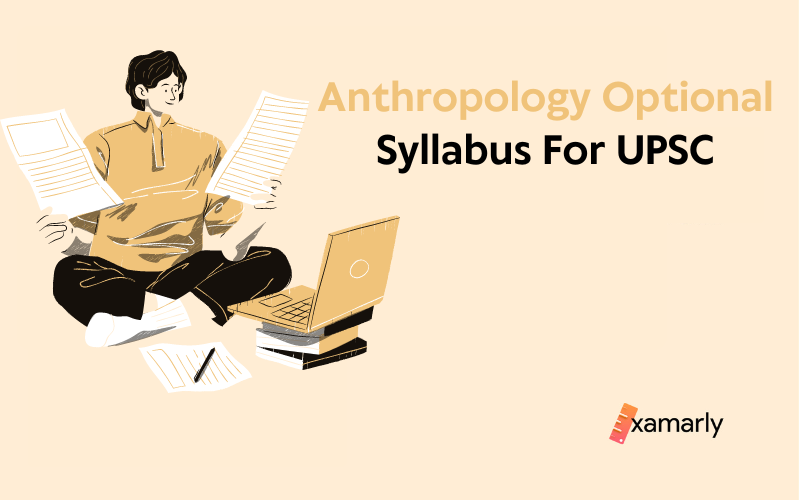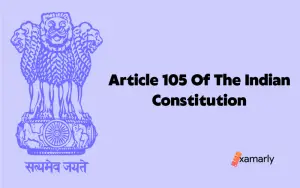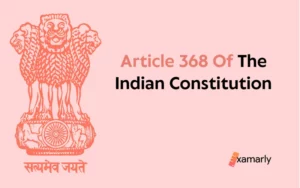The Anthropology optional syllabus for UPSC Exam places a strong emphasis on the candidates’ capacity to comprehend the subject as science and apply the understanding to topics that affects the general populace.
Due to accessible resources for preparation and an easily understandable syllabus, Anthropology is one of the popular UPSC optional subjects among Civil Services aspirants.
In this article, we will discuss the complete syllabus of Anthropology Optional for UPSC of Paper 1 & 2, Exam Pattern, Succes Rate, Preparation strategy, and best standard books.
- Anthropology Optional Syllabus For UPSC
- Exam Pattern
- Success Rate of Anthropology Optional in UPSC Exams
- Preparation Strategy
- Recommended Books
- Which Is Easy – Anthropology Or Sociology For UPSC Exam?
- Conclusion
- FAQs
- What Is Anthropology?
- Is Anthropology A Good Option In UPSC Exam?
- Why Anthropology Is Better Than Other Subjects For UPSC?
- Is There Any Topper Who Chose Anthropology optional In UPSC?
- Is Anthropology Easy For the UPSC Optional?
- Is The Syllabus Of Anthropology Shorter Than Other Optional Papers In The UPSC?
- Who Should Take Anthropology Optional in UPSC?
- Can The Anthropology Syllabus As The UPSC Option Be Completed In 3 Months?
Anthropology Optional Syllabus For UPSC
Anthropology Optional UPSC Syllabus For Paper I
| 1.1 Meaning, scope, and development of Anthropology. |
| 1.2 Relationship with other disciplines: History, Economics, Sociology, Psychology, Political Science, Life Science, Medical Science. |
| 1.3 Main branches of Anthropology, their scope, and relevance: Social-cultural Anthropology.Biological Anthropology.Archaeological Anthropology.Linguistic Anthropology. |
| 1.4 Human Evolution and the emergence of Man: Biological and Cultural factors in human evolution.Theories of Organic Evolution (Pre- Darwinian, Darwinian and Post-Darwinian).Synthetic theory of evolution; Brief outline of terms and concepts of evolutionary biology (Doll’s rule, Cope’s rule, Gause’s rule, parallelism, convergence, adaptive radiation, and mosaic evolution). |
| 1.5 Characteristics of Primates; Evolutionary Trend and Primate Taxonomy; Primate Adaptations; (Arboreal and Terrestrial) Primate Taxonomy; Primate Behaviour; Tertiary and Quaternary fossil primates; Living Major Primates; Comparative Anatomy of Man and Apes; Skeletal changes due to erect posture and its implications. |
| 1.6 Phylogenetic status, characteristics and geographical distribution of the following: Plio-preleistocene hominids in South and East Africa – Australopith Homo erectus: Africa (Paranthropus), Europe (Homo erectus heidelbergensis), Asia (Homo erectus javanicus, Homo erectus pekinensis).Neanderthal Man- La-Chapelle-aux-saints (Classical type), Mt. Carmel (Progressive type).Rhodesian man. Homo sapiens — Cromagnon, Grimaldi, and Chancelede. |
| 1.7 The biological basis of life: The Cell, DNA structure and replication, Protein Synthesis, Gene, Mutation, Chromosomes, and Cell Division. |
| 1.8 a) Principles of Prehistoric Archaeology. Chronology: Relative and Absolute Dating methods. b) Cultural Evolution- Broad Outlines of Prehistoric cultures: (i) Paleolithic (ii) Mesolithic (iii) Neolithic (iv) Chalcolithic (v) Copper-Bronze Age (vi) Iron Age |
| 2.1 The Nature of Culture: The concept and characteristics of culture and civilization; Ethnocentrism vis-à-vis cultural Relativism |
| 2.2 The Nature of Society: Concept of Society; Society and Culture; Social Institutions; Social groups; Social stratification. |
| 2.3 Marriage: Definition and universality; Laws of marriage (endogamy, exogamy, hypergamy, hypogamy, incest taboo); Types of marriage (monogamy, polygamy, polyandry, group marriage). Functions of marriage; Marriage regulations (preferential, prescriptive and proscriptive); Marriage payments (bride wealth and dowry). |
| 2.4 Family: Definition and universality; Family, household and domestic groups; functions of family; Types of family (from the perspectives of structure, blood relation, marriage, residence and succession); Impact of urbanization, industrialization, and feminist movements on family. |
| 2.5 Kinship: Consanguinity and Affinity; Principles and types of descent (Unilineal, Double, Bilateral, Ambilineal); Forms of descent groups (lineage, clan, phratry, moiety, and kindred); Kinship terminology (descriptive and classificatory); Descent, Filiation and Complimentary Filiation; Descent and Alliance. |
| 3. Economic organization: Meaning, scope and relevance of economic anthropology; Formalist and Substantivist debate; Principles governing the production, distribution and exchange (reciprocity, redistribution and market), in communities, subsisting on hunting and gathering, fishing, swiddening, pastoralism, horticulture, and agriculture; globalization and indigenous economic systems. |
| 4. Political organization and Social Control: Band, tribe, chiefdom, kingdom and state; concepts of power, authority and legitimacy; social control, law, and justice in simple societies |
| 5. Religion: Anthropological approaches to the study of religion (evolutionary, psychological and functional); monotheism and polytheism; sacred and profane; myths and rituals; forms of religion in tribal and peasant societies (animism, animatism, fetishism, naturism and totemism); religion, magic and science distinguished; magico- religious functionaries (priest, shaman, medicine man, sorcerer and witch). |
| 6. Anthropological theories: Classical evolutionism (Tylor, Morgan, and Frazer)Historical particularism (Boas); Diffusionism (British, German and American)Functionalism (Malinowski); Structural- functionalism (Radcliffe-Brown)Structuralism (L’evi – Strauss and E. Leach)Culture and personality (Benedict, Mead, Linton, Kardiner and Cora – du Bois).Neo – evolutionism (Childe, White, Steward, Sahlins and Service)Cultural materialism (Harris)Symbolic and interpretive theories (Turner, Schneider and Geertz)Cognitive theories (Tyler, Conklin)Post- modernism in anthropology |
| 7. Culture, language, and communication: Nature, origin and characteristics of language; verbal and non-verbal communication; social context of language use. |
| 8. Research methods in Anthropology (a) Fieldwork tradition in anthropology (b) Distinction between technique, method and methodology (c) Tools of data collection: observation, interview, schedules, questionnaire, case study, genealogy, life history, oral history, secondary sources of information, and participatory methods. (d) Analysis, interpretation and presentation of data. |
| 9.1 Human Genetics: Methods and Application: Methods for the study of genetic principles in the man-family study (pedigree analysis, twin study, foster child, co-twin method, cytogenetic method, chromosomal and karyotype analysis), biochemical methods, immunological methods, D.N.A. technology and recombinant technologies. |
| 9.2 Mendelian genetics in the man-family study, single factor, multifactor, lethal, sub-lethal and polygenic inheritance in man. |
| 9.3 Concept of genetic polymorphism and selection, Mendelian population, Hardy-Weinberg law; causes and changes which bring down frequency-mutation, isolation, migration, selection, inbreeding and genetic drift. Consanguineous and non-consanguineous mating, genetic load, genetic effect of consanguineous and cousin marriages. |
| 9.4 Chromosomes and chromosomal aberrations in man, methodology. (a) Numerical and structural aberrations (disorders). (b) Sex chromosomal aberration- Klinefelter (XXY), Turner (XO), Super female (XXX), intersex and other syndromic disorders. (c) Autosomal aberrations- Down syndrome, Patau, Edward and Cri-du-chat syndromes. (d) Genetic imprints in human disease, genetic screening, genetic counseling, human DNA profiling, gene mapping and genome study. |
| 9.5 Race and racism, biological basis of morphological variation of non-metric and characters. Racial criteria, racial traits in relation to heredity and environment; biological basis of racial classification, racial differentiation and race crossing in man. |
| 9.6 Age, sex and population variation as a genetic marker: ABO, Rh blood groups, HLA Hp, transferring, Gm, blood enzymes. Physiological characteristics-Hb level, body fat, pulse rate, respiratory functions and sensory perceptions in different cultural and socio-economic groups. |
| 9.7 Concepts and methods of Ecological Anthropology: Bio-cultural Adaptations—Genetic and Non-genetic factors. Man’s physiological responses to environmental stresses: hot desert, cold, high altitude climate. |
| 9.8 Epidemiological Anthropology: Health and disease. Infectious and non-infectious diseases, Nutritional deficiency-related diseases. |
| 10. Concept of human growth and Development: Stages of growth—pre-natal, natal, infant, childhood, adolescence, maturity, senescence. (a) Factors affecting development and are growth genetic, biochemical, environmental, nutritional, socio-economic and cultural. (b) Ageing and senescence. Theories and observations (c) Biological and chronological longevity. Human physique and somatotypes. Methodologies for growth studies. |
| 11.1 Relevance of menarche, menopause and other bio events to fertility. Fertility patterns and differentials. |
| 11.2 Demographic theories- biological, social, and cultural. |
| 11.3 Biological and socio-ecological factors influencing fecundity, fertility, natality and mortality. |
| 12. Applications of Anthropology: Anthropology of sports, Nutritional anthropology, Anthropology in designing of defence and other equipment, Forensic Anthropology, Methods and principles of personal identification and reconstruction, Applied human genetics—Paternity diagnosis, genetic counselling and eugenics, DNA technology in diseases and medicine, serogenetics and cytogenetics in reproductive biology. |
UPSC Anthropology Optional Syllabus For Paper II
| 1.1 Evolution of the Indian Culture and Civilization— Prehistoric (Palaeolithic, Mesolithic, Neolithic and Neolithic-Chalcolithic), Protohistoric (Indus Civilization). Pre-Harappan, Harappan and post- Harappan cultures. Contributions of the tribal cultures to Indian civilization. |
| 1.2 Palaeo—Anthropological evidence from India with special reference to Siwaliks and Narmada basin (Ramapithecus, Sivapithecus and Narmada Man). |
| 1.3. Ethno-archaeology in India: The concept of ethnoarchaeology; Survivals and Parallels among the hunting, foraging, fishing, pastoral and peasant communities including arts and crafts producing communities. |
| 2. Demographic profile of India—Ethnic and linguistic elements in the Indian population and their distribution. Indian population—factors influencing its structure and growth. |
| 3.1 The structure and nature of traditional Indian social system—Varnashram, Purushartha, Karma, Rina and Rebirth. |
| 3.2 Caste system in India— Structure and characteristics Varna and caste, Theories of origin of the caste system, Dominant caste, Caste mobility, Future of caste system, Jajmani system. Tribe-case continuum. |
| 3.3 Sacred Complex and Nature-Man-Spirit Complex. |
| 3.4. Impact of Buddhism, Jainism, Islam and Christianity on Indian society. |
| 4. Emergence, growth and development in India— Contributions of the 18th, 19th and early 20th Century scholar-administrators. Contributions of Indian anthropologists to tribal and caste studies. |
| 5.1 Indian Village—Significance of village study in India; Indian village as a social system; Traditional and changing patterns of settlement and inter-caste relations; Agrarian relations in Indian villages; Impact of globalization on Indian villages. |
| 5.2 Linguistic and religious minorities and their social, political and economic status. |
| 5.3 Indigenous and exogenous processes of socio-cultural change in Indian society: Sanskritization, Westernization, Modernization; Inter-play of little and great traditions; Panchayati Raj and social change; Media and Social Change. |
| 6.1 Tribal situation in India—Bio-genetic variability, linguistic and socio-economic characteristics of the tribal populations and their distribution. |
| 6.2 Problems of the tribal Communities—Land alienation, poverty, indebtedness, low literacy, poor educational facilities, unemployment, under-employment, health and nutrition. |
| 6.3 Developmental projects and their impact on tribal displacement and problems of rehabilitation. Development of forest policy and tribals. Impact of urbanisation and industrialization on tribal populations. |
| 7.1 Problems of exploitation and deprivation of Scheduled Castes, Scheduled Tribes and Other Backward Classes. Constitutional safeguards for Scheduled Tribes and Scheduled Castes. |
| 7.2 Social change and contemporary tribal societies: Impact of modern democratic institutions, development programmes and welfare measures on tribals and weaker sections. |
| 7.3 The concept of ethnicity; Ethnic conflicts and political developments; Unrest among tribal communities; Regionalism and demand for autonomy; Pseudo-tribalism. Social change among the tribes during colonial and post-Independent India. |
| 8.1 Impact of Hinduism, Buddhism, Christianity, Islam and other religions on tribal societies. |
| 8.2 Tribe and nation-state—a comparative study of tribal communities in India and other countries. |
| 9.1 History of administration of tribal areas, tribal policies, plans, programmes of tribal development and their implementation. The concept of PTGs (Primitive Tribal Groups), their distribution, and special programmes for their development. Role of N.G.O.s in tribal development. |
| 9.2 Role of anthropology in tribal and rural development. |
| 9.3 Contributions of anthropology to the understanding of regionalism, communalism and ethnic and political movements. |
Exam Pattern
UPSC Anthropology paper includes in the IAS Main examination. UPSC Anthropology optional syllabus consists of two papers worth 250 marks each.
Read the linked article to learn more about the UPSC Exam Pattern.
Success Rate of Anthropology Optional in UPSC Exams
The success rate of Anthropology is high. It is not the easiest optional subject but if you are good at reading and drawing, this subject will be good for you. You will have to focus on all the topics in the syllabus of anthropology optional UPSC and focus on the relevant aspects as well.
The following table shows the no. of candidates who appeared for the year 2011 to 2016 with their success rate:
| Year | No. of Students appeared | No. of Students cleared | Success rate (%) |
| 2016 | 345 | 37 | 10.7 |
| 2015 | 641 | 95 | 14.8 |
| 2014 | 619 | 68 | 11 |
| 2013 | 449 | 53 | 11.8 |
| 2012 | 579 | 38 | 6.6 |
| 2011 | 463 | 61 | 13.2 |
Read about Aparna Ramesh IAS who has secured 35th rank with Anthropology as an optional subject.
Preparation Strategy
- As anthropology is one of the optional subjects for UPSC, you should spend ample time studying the syllabus and revising it multiple times. This will help you in absorbing everything in a better way and will help you retain it in your brain for a longer period of time. Many students forget things on the day of the exam, so revising the syllabus regularly will help you to keep these things in your mind.
- As anthropology is a dynamic subject, it is imperative to keep yourself updated with current events. Try to incorporate current government programs into your study.
- In addition to the Anthropology UPSC optional syllabus, you can also refer to previous years’ questions to get a better idea of the type of questions you might get on the UPSC Anthropology optional paper. Similarly, you can consult books on anthropology to improve your marks
- Another way to prepare for Anthropology optional is to prepare case studies on the effects of development projects on tribal societies. In this way, you’ll be able to see how development projects are affecting tribal habitations and relationships.
- Moreover, you’ll be able to learn more about social changes and the exploitation of SC/ST and OBC communities. Additionally, you can also read up on recent events in the world of Anthropology, such as annual reports from the Ministry of Tribal Affairs.
- You should also focus on your presentation style and make your responses attractive. This will help you to score better. Moreover, if possible, use flow charts and diagrams to make your response visually appealing.
Recommended Books
These are some recommended books to prepare Anthropology optional syllabus for UPSC Exam.
| Paper | Books |
| Paper-1 | Anthropology Simplified – Vivek Bhasme Anthropology – Ember and Ember Physical Anthropology – P Nath |
| Paper-2 | January 2014 edition of Yojana- Tribal and Marginalized Communities The Tribal Culture of India – LP Vidyarthi Tribal India – Nadeem Hasnain Xaxa Report Anthropology Simplified– Vivek Bhasme Indian Anthropology -Nadeem Hasnain |
Check out the linked article to learn about the list of Anthropology Books For UPSC Exam preparation.
Which Is Easy – Anthropology Or Sociology For UPSC Exam?
There are two categories of subjects in the UPSC Examination – Anthropology and Sociology. Both subjects cover the same material both have a shorter syllabus.
Sociology is more appealing to students in humanities departments. In addition, it helps in the interview stage and the ethics paper. However, the main consideration should be which is easier to study. The answer depends on your academic background in your graduation/post-graduation and the availability of materials.
Read it further to discover the pros of both subjects.
Why Sociology Is A Good Choice?
- Sociology Optional For UPSC appears to be the preferred option among more candidates.
- It is simple to comprehend.
- It is more well-liked among graduates of humanities because it has fewer concepts based on science than anthropology.
- It is a subject for scoring.
- There is a significant overlap with general studies.
- It is very helpful in the essay paper. As one essay is usually based on social issues.
- The stage of the interview and the ethics paper both benefit from this subject.
Why Anthropology Is A Good Choice?
- It is the preferable choice for science students, particularly those with a biological background.
- Due to its scientific approach, this subject is scoring in nature.
- The anthropology UPSC optional syllabus is shorter than the sociology syllabus.
- As opposed to sociology, anthropology does not place as much value on writing abilities.
- In contrast to sociology, it lacks statistical methods.
Anthropology is an interdisciplinary field that studies human beings throughout history. It deals with physical and psychological characteristics, as well as social relations. Sociology focuses on societies during a given time period. Both fields are closely related and explore the evolution of human societies.
Conclusion
Anthropology optional should be prepared thoroughly if one has chosen it for the UPSC Mains, by studying the previous years’ papers and also going through relevant books on Anthropology for UPSC. IAS aspirants can integrate their preparation for Anthropology optional with preparation for General Studies in prelims and mains as there is an overlap in the syllabus of both subjects.
Due to its short, simple syllabus and high success rate, anthropology is one of the most popular optional subjects. It’s advisable to read through the NCERT Sociology textbooks for classes XI and XII once or twice if you plan to choose Anthropology as an optional subject in the UPSC Mains test. Study previous year’s exam questions. Ideally, you should go through the course material topic by topic, practice labeled diagrams, and take brief notes as you go. Best of luck with your preparation:
FAQs
What Is Anthropology?
Anthropology is a science that deals with human behavior and culture. The discipline covers human biology, societies, cultures, and linguistics, as well as the past human species. There are several fields within this discipline, and you can find out more by reading the definition of Anthropology. You can also learn more about anthropology careers by reading our article about the field. Anthropology involves the study of people throughout history and throughout the world. It takes a multi-disciplinary approach to humankind, which is unique from other social sciences. As a result, anthropologists combine biological, environmental, and cultural knowledge to create a comprehensive understanding of society.
Is Anthropology A Good Option In UPSC Exam?
Anthropology is a viable option for the IAS Exam. However, a lot relies on how much the applicant concentrates on comprehending principles.
The UPSC optional anthropology syllabus is not difficult at all and there is no need to spend too much time on it. It covers the various areas in a systematic way. As a result, students who take it up as an optional subject will find it easier to frame answers and score high marks. The subject is easily understandable and can help a student score 300+ marks.
Why Anthropology Is Better Than Other Subjects For UPSC?
Among the optional subjects offered by UPSC, anthropology is considered a high-scoring subject. The questions in the examination usually focus on direct facts and don’t involve writing or opinion. However, this does not mean that the subject is easy to master.
They should pay attention to the syllabus of the subject and focus on all the relevant aspects of it. Unlike other subjects, Anthropology is a subject that focuses on understanding concepts rather than memorizing theorems and formulas. Besides, the syllabus is relatively small, so the chances of cracking the UPSC examination are improving with proper preparation.
Is There Any Topper Who Chose Anthropology optional In UPSC?
Anthropology optional for UPSC has given many toppers in the past like Anudeep Durishetty (AIR 1, 2017) and Sachin Gupta (AIR 3,2017).
Is Anthropology Easy For the UPSC Optional?
The study of anthropology is seen as being simple for science graduates. Science-related ideas are frequently used in the subject. Because of this, scientific students can understand the topic better.
Is The Syllabus Of Anthropology Shorter Than Other Optional Papers In The UPSC?
The syllabus of Anthropology optional for UPSC is shorter than the syllabus of sociology.
Who Should Take Anthropology Optional in UPSC?
Students studying science, particularly those of a biology background should make this choice. The scientific aspect of it is another factor in the favour of scoring high.
Can The Anthropology Syllabus As The UPSC Option Be Completed In 3 Months?
The syllabus of this subject is short which makes it possible for the aspirants to cover it in 3 months. Science-related ideas are frequently used in the subject. So one can easily grasp the concepts if he/she is from science background. Additionally, there is a wealth of reading material on this subject. Thus anyone can easily cover it from these study resources.






